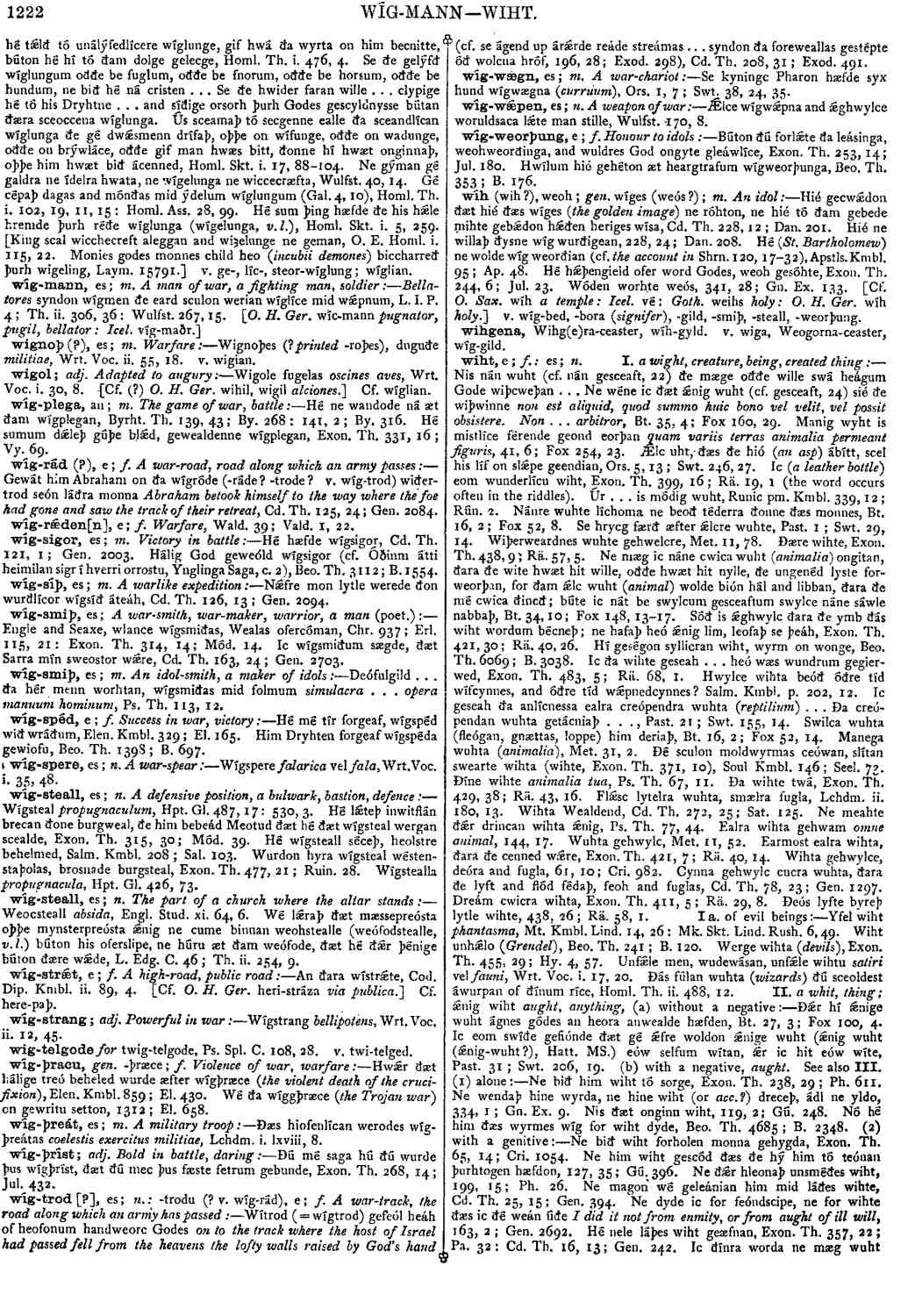wíh
- noun [ masculine ]
-
Hié gecwǽdon ðæt hié ðæs wíges (
the golden image
) ne róhton, ne hié tó ðam gebede mihte gebǽdon hǽðen heriges wísa,- Cd. Th. 228, 12 ; Dan. 201.
-
Hié ne willaþ ðysne wígwurðigean,
- 228, 24; Dan. 208.
-
Hé (St.Bartholomew) ne wolde wíg weorðian (cf.
the account in
- Shrn. 120, 17-32), Apstls. Kmbl. 95 ; Ap. 48.
-
Hé hǽþengield ofer word Godes, weoh gesóhte,
- Exon. Th. 244, 6; Jul. 23.
-
Wóden worhte weós,
- 341, 28; Gn. Ex. 133.
Bosworth, Joseph. “wíh.” In An Anglo-Saxon Dictionary Online, edited by Thomas Northcote Toller, Christ Sean, and Ondřej Tichy. Prague: Faculty of Arts, Charles University, 2014. https://bosworthtoller.com/35701.
Checked: 0